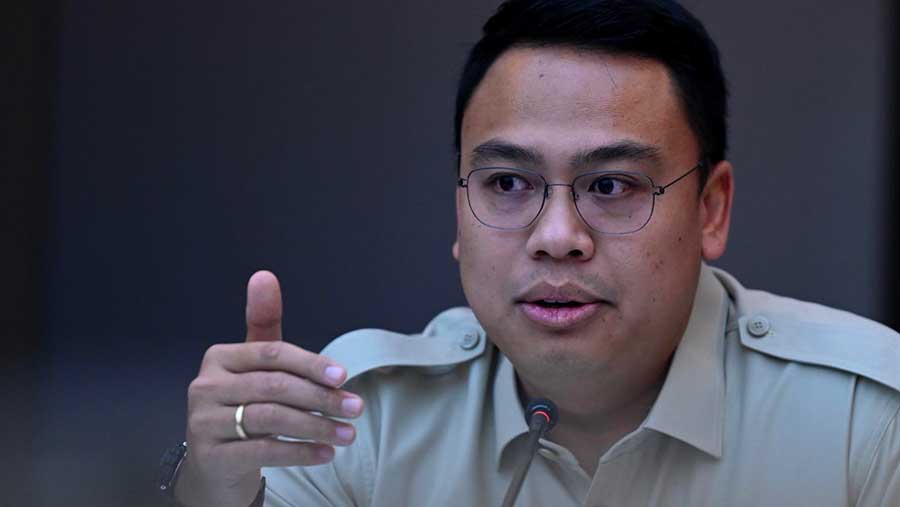The Indonesian government has intensified its call for TikTok to build a stronger and more transparent system for handling provocative and harmful content. Deputy Minister of Communication and Digital, Angga Raka Prabowo, emphasized that the platform must take greater responsibility in curbing the spread of disinformation, hate speech, and provocative narratives that could disrupt social harmony in the country.
This push reflects a broader trend in how governments across Southeast Asia are holding global technology companies accountable. With over 125 million active users in Indonesia, TikTok is one of the most widely used platforms in the country, making its content moderation practices critical for public safety and information integrity.
The Government’s Concerns Over TikTok’s Growing Influence
Indonesia’s digital ecosystem has expanded rapidly in recent years, and social media platforms like TikTok, Instagram, and YouTube are at the center of this transformation. However, the government remains concerned about the negative impact of unregulated content.
According to the Ministry of Communication and Digital Affairs, TikTok’s content moderation system often fails to respond quickly to harmful posts. While TikTok claims to rely on AI-driven moderation tools, Indonesian regulators argue that these systems are not sufficient to handle the nuances of local language and cultural context.
This is why Angga Raka Prabowo has demanded TikTok establish a dedicated mechanism to identify and respond to provocative content in Indonesia. Such a system would include more local moderators, faster response times, and collaboration with government authorities.
Why Content Moderation Matters For Indonesia
TikTok’s role in shaping public opinion has grown tremendously, especially among younger generations. The short-video format makes it easy for content to go viral within minutes, whether that content is entertaining, educational, or politically charged.
Without effective content moderation, misinformation can spread rapidly, triggering real-world consequences. In previous years, Indonesia has experienced incidents where provocative content on social media led to political unrest, demonstrations, and social divisions.
By urging TikTok to strengthen its content moderation system, the government aims to minimize these risks. Officials believe that a stronger framework would help prevent the weaponization of social media during sensitive political periods, including elections.
Furthermore, the government stresses that this is not just about censorship, but about building a safer digital ecosystem where freedom of expression is balanced with responsibility.
Challenges TikTok Faces In Implementing Stronger Moderation
While the demand for better TikTok content moderation is clear, the implementation is far from simple. The platform faces several key challenges:
- Language Diversity: Indonesia has hundreds of local languages and dialects, making automated moderation difficult.
- Cultural Nuances: Certain content may be provocative in one context but harmless in another.
- Volume of Content: Millions of videos are uploaded daily, requiring both AI tools and human moderators.
- Balancing Free Speech: TikTok must navigate the delicate balance between removing harmful content and allowing freedom of expression.
To address these issues, experts suggest TikTok invest more heavily in local teams and collaborate directly with Indonesian fact-checkers and civil society organizations.
The Global Context Of TikTok’s Moderation Challenges
Indonesia is not the only country scrutinizing TikTok. Around the world, governments are pressuring the platform to improve how it manages harmful content. The United States and European Union have already set stricter rules regarding disinformation, child protection, and hate speech on digital platforms.
If TikTok fails to comply, it risks facing regulatory penalties or even restrictions in certain markets. Indonesia, being TikTok’s second-largest market after the United States, represents a critical battleground for how the company handles these challenges.
TikTok’s response in Indonesia could set an important precedent for how it deals with government oversight globally.
Looking Ahead: What’s Next For TikTok In Indonesia
As Indonesia prepares for upcoming political and social milestones, the urgency for stronger content moderation will only increase. The government has made it clear that TikTok cannot operate without accountability.
For TikTok, the path forward involves more investment in local moderation teams, greater transparency in how decisions are made, and closer cooperation with regulators. If successful, these steps could enhance trust between the platform, the government, and its millions of users.
Ultimately, the issue is not just about TikTok but about the future of Indonesia’s digital ecosystem. Striking the right balance between openness and safety will determine how the country navigates the evolving challenges of social media in the years ahead.
Read More






 Monday, 02-03-26
Monday, 02-03-26







